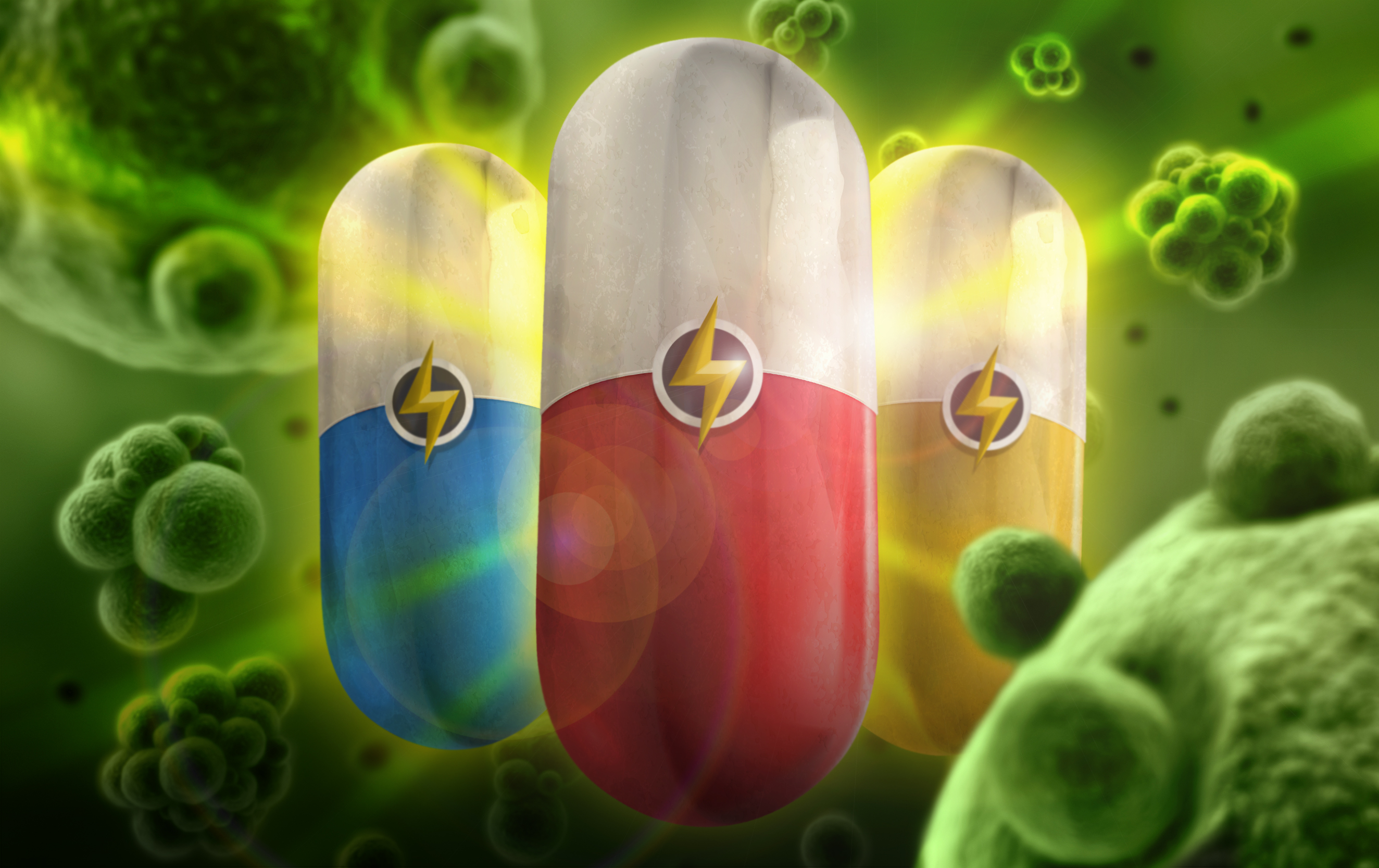
A novel combination of aztreonam, amikacin and polymyxin B was able to kill E. coli carrying mcr-1 and ndm-5 — genes that make the bacterium immune to last-resort antibiotics. Source: University of Buffalo
A trio of antibiotics could hold the key to eradicating a deadly superbug for good.
Researchers at the University of Buffalo discovered a novel combination of aztreonam, amikacin, and polymyxin B – a last resort antibiotic — was able to simultaneously kill E. coli bacterium strains carrying mcr-1 and ndm-5 genes within 24 hours while also preventing regrowth.
E.coli carrying the mcr-1 and ndm-5 genes have made it immune to last-resort antibiotics.
Polymyxins are considered as a treatment option when all else has failed because, while effective, they can cause kidney damage. Scientists explored new dosing strategies and therapeutic combinations in an effort to avoid prescribing high doses of these drugs and make up for the medication’s weaknesses.
The team performed studies on dozens of combinations of more than 15 antibiotics paired with polymyxin B.
Two combinations with either aztreonam or amikacin emerged as the best candidates producing undetectable bacterial counts after a 24-hour period.
However, the bacteria was able to regrow to initial levels after 96 hours whereas strains resistant to amikacin formed after 10 days. The fusion of polymixin B and aztreonam made the E.coli enter into a persistent but non-replicating state.
Overall, combining all three treatments together yielded the best results.
“We knew that polymyxins alone couldn’t work. Only the three drugs combined were able to work synergistically to suppress and kill the bacteria,” said Zackery Bulman, PharmD, the first author of the study and a graduate of the University of Buffalo’s School of Pharmacy and Pharmaceutical Sciences. “We overcame the bacteria by pushing it as far as possible with an agent that it was resistant to while simultaneously administering two other antibiotics.”
There have been less than two dozen cases reported of infections with this pathogen in the United States, but additional cases reported worldwide have shown how the bacteria’s immunity to available treatments leaves the medical community vulnerable to a massive outbreak of infections.
“We believe that the appearance of mcr-1 and ndm-5 in patients may be a harbinger for what is to come. The golden era of antibiotics isn’t over yet, but we wanted to help clinicians prepare therapeutically for the occurrence of these strains,” continued Bulman.
Findings from this experiment were published in the journal, mBio.
Filed Under: Drug Discovery




